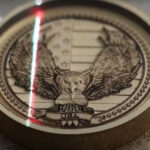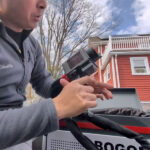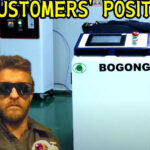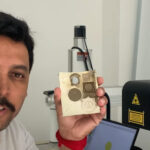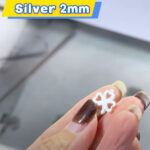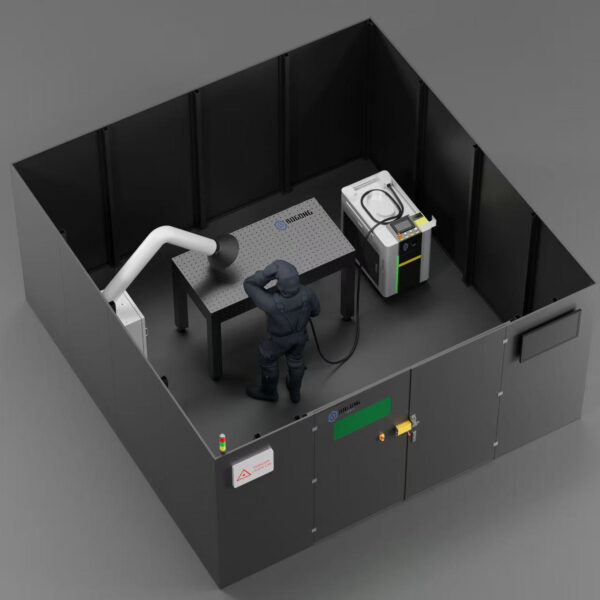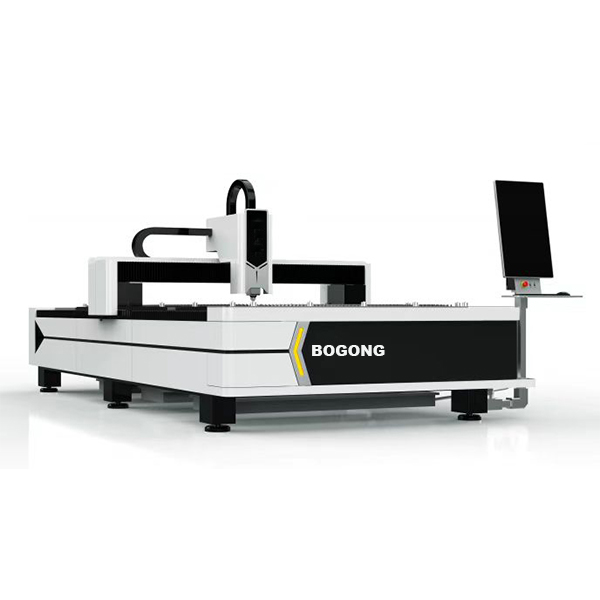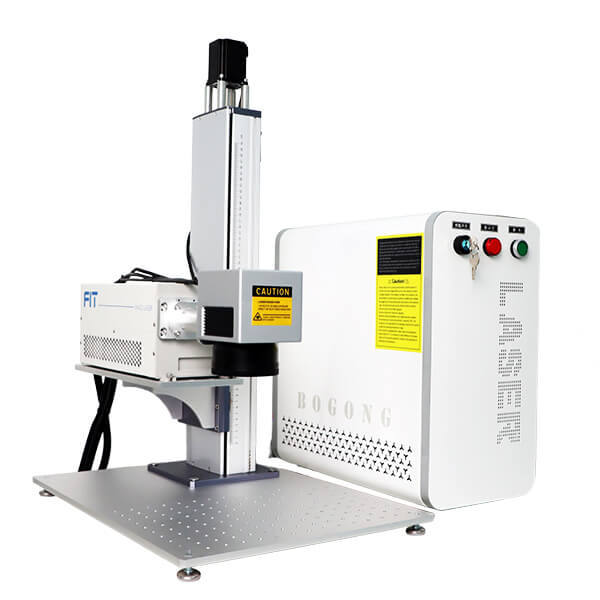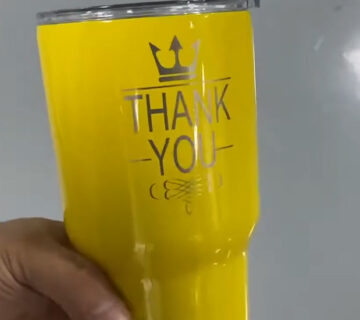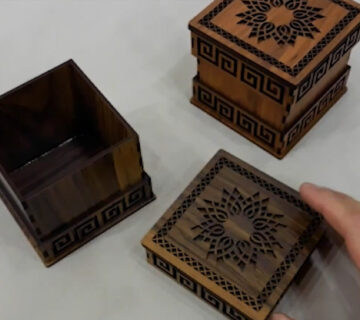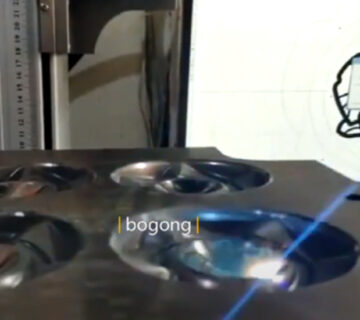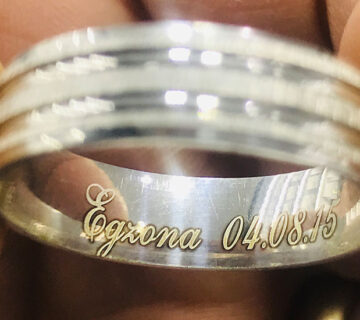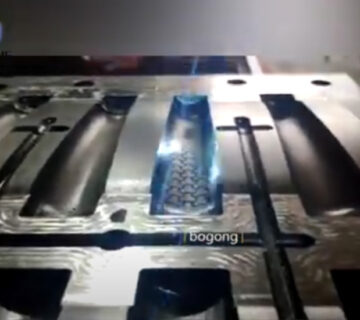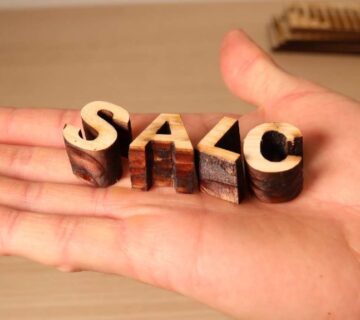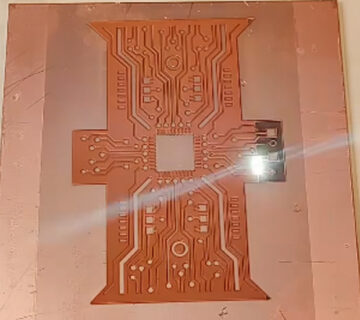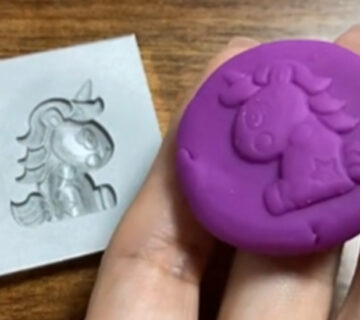Industrial laser engravers for metal parts marking usage concentrated laser beam of lights to create long-term, specific, and sturdy markings on metal surfaces.
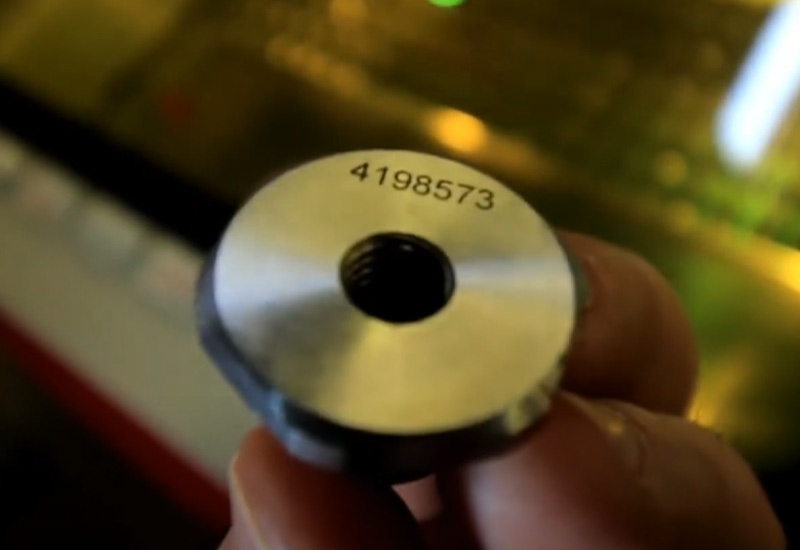
Why Non-Contact Marking Works
Clean, permanent marks without harming the part. The beam never touches the surface, so delicate edges and finishes stay intact.
No consumables: Skip ink, stencils, and chemicals.
No mechanical stress: Only a thin surface layer is modified—no burrs, no tool wear, no micro-cracks.
Cleaner workflow: No extra waste stream to store or treat.
Example – Automotive nameplates:
A tier-1 supplier replaced chemical etching with a 30W Fiber Laser Marcare mașină. They eliminated pre-treatment steps, cut downtime, and achieved corrosion-resistant marks that survive the life of the chassis.
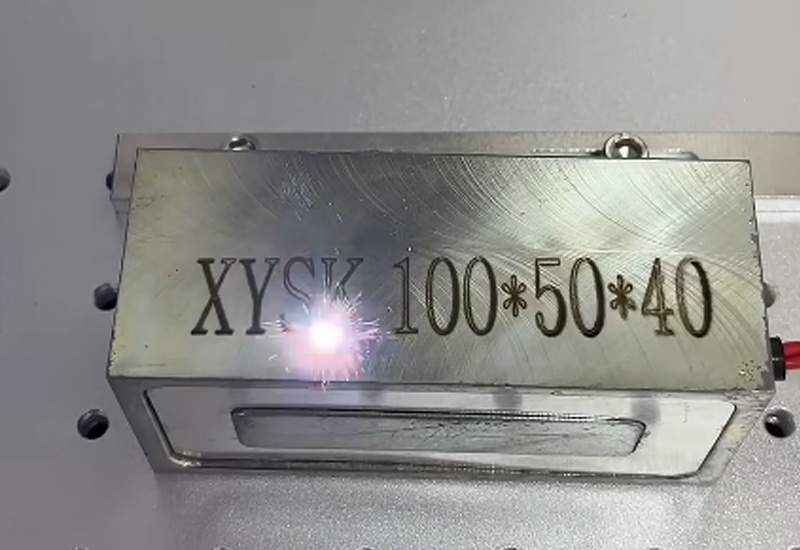
How the Tech Works
Galvo head: Two high-speed mirrors steer the beam to draw features rapidly over a fixed field.
Beam delivery & spot size: Field lens choice sets field size and spot diameter; smaller spots yield finer detail.
Pulse control: In MOPA fiber sources, pulse width/shape tuning unlocks contrast on sensitive or coated metals.
Motion options: Add XY stages, conveyors, or rotary axes for larger areas or cylindrical parts.
Laser Types at a Glance
| Tip laser | Relative Speed vs CO₂ | Typical Materials | What it’s great at |
|---|---|---|---|
| Laser cu fibră | Faster | Steel, aluminum, titanium | Deep, durable metal IDs; sharp contrast |
| MOPA Fiber | Faster | Copper, precious metals, coated parts | Pulse-tailored color/contrast; delicate layers |
| CO₂ Laser | Baseline | Plastics, wood, glass | Packaging, covers, labels |
| Laser UV | Faster | Polymers, ceramics, thin films | Fine DPM codes on sensitive substrates |
Marking Methods: Pick the Right Recipe
Surface annealing: Heats the oxide layer to create dark contrast with little or no material removal; ideal for smooth finishes and medical tools.
Ablation / standard engraving: Removes microns of material for clear, tactile marks.
Deep engraving: Multiple passes build durable depth for mold stamps, harsh environments, or post-process machining.
Tuning levers: average power, pulse energy, pulse width, repetition rate, scan speed, hatch spacing, and number of loops.
Let’s watch this video to see how BOGONG Laser machine engrave on metal.
Designing for Readability and Verification
Code size: Don’t push cells below process capability; keep a sensible quiet zone.
Surface state: Control roughness and coatings; pre-clean if oils or oxides could reduce contrast.
Orientation & placement: Avoid high-glare angles; allow scanner access and focus clearance.
After-process legibility: Validate marks after washing, bead-blast, paint, powder coat, or anodize.
Throughput Without Sacrificing Quality
Operate inside a stable process window instead of maxing out a single parameter.
Match field lens to part size: larger fields are faster to cover but demand tighter focus control.
Use galvo for speed and add staged motion sau rotary for larger areas or cylinders.
Build parametric recipes (material → finish → target grade) to keep cycle times predictable.
Traceability & Data Integration
UID generation: Auto-create serials and batch codes; embed timestamps and lot info.
MES/ERP hooks: Use controller protocols (e.g., Modbus/Profinet) to capture each mark event and store images or verifier scores.
Closed-loop checks: Trigger an in-line verifier or camera to confirm presence, contrast, and data integrity before releasing the part.
Choosing the Right Machine:
Best for: automotive nameplates, general metal UIDs/QR codes on stainless & aluminum; compact cell for day-to-day production.
Best for: deeper engraving, larger fields, and tougher alloys—think aerospace serials, molds, and industrial plates.
Best for: curved/stepped parts and mixed-height fixtures across automotive and equipment components; keeps focus and contrast consistent.
Inside BOGONG Laser’s Factory
BOGONG LASER® – Professional CNC Laser Machine Manufacturer cranks out every unit under ISO9001/CE/SGS watch. They test each Laser
BOGONG Laser’s global team has troves of setup profiles—just ping them your spec sheet and they’ll share proven configs.


